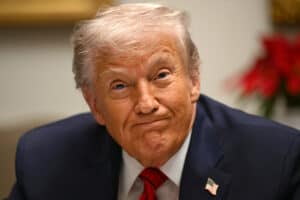Despite promising an unconditional ceasefire, Ukraine launched major drone strikes on Russia. Peace efforts falter, and the nuclear threat becomes harder to ignore.

The world is on the brink of a nuclear disaster once more because the proponents of the Russian-Ukrainian war continue to act as though they are discussing peace while fighting.
Sunday’s massive drone attacks by Ukrainian forces on Russian strategic aviation facilities destroyed a large number of its jet bombers, as well as railway lines and bridges in the Bryansk and Kursk regions.
The attacks that killed at least eight people, including children, could trigger massive retaliation by Russia soon. Some in Moscow even predict a nuclear attack, or using something more than just a single ballistic missile.
These developments show nobody is committed to a ceasefire. Clearly, when Ukraine President Volodymyr Zelensky visited South Africa on 24 April, and promised an “unconditional ceasefire with Russia” he did not mean it.
He knew his forces were preparing to launch a rain of first person view drones on Russia.
With Zelensky’s unconditional ceasefire promise unfulfilled, he sold President Cyril Ramaphosa a dummy.
ALSO READ: Ukraine shows it’s far from finished with Russian warplanes bombing
Nobody expected the talks between Moscow and Kyiv in Istanbul, Türkiye, on Monday to proceed at all, following the Ukraine attacks. The meeting was bound to collapse.
Ukrainian negotiators presented to their Russian counterparts a memorandum on how they felt the conflict should be settled, while rejecting most of Moscow’s proposals.
Kyiv proposed a declaration of a complete ceasefire for 30 days with the possibility of extension. It required that the US and other countries ensure control of the ceasefire process. In addition, Ukraine wants to have the “all for all” exchange of prisoners with Russia.
Ukraine also demanded direct talks between Russian President Vladimir Putin and Zelensky.
Russia’s position was summed up by Foreign Minister Sergei Lavrov, who said Moscow intends to discuss with Ukraine its neutral, non-aligned, non-nuclear status and a ban on discrimination against the Russian language in Ukraine.
But experts say Russia is not satisfied with the Ukrainian conditions contained in their memorandum. “Vladimir Zelensky is seeking a truce in order to use it as a respite and then resume hostilities,” one expert said.
ALSO READ: Kremlin denies dragging out Ukraine peace talks
It was good to see that delegations from both sides comprised top officials, including Ukraine’s defence minister, Russia’s deputy defence ministers and senior intelligence chiefs.
The collapse of the talks was imminent after the drone attacks on Russia.
Political observers consider Ukraine’s “timed” actions as an attempt by Kyiv to disrupt the Türkiye meeting. The head of the research centre, Sigma Insight Turkey, Ahmet Dogan, said Ukraine’s attacks have reduced the likelihood of a constructive dialogue at the talks in Istanbul.
“Moscow is looking not only for a ceasefire, but also for a final peace and Ukraine, with the support of its European allies, is constantly provoking it. I am not sure the consultations will lead to anything constructive,” the expert said.
The Russian delegation vowed that Moscow’s response to “terrorist attacks will be powerful” because Ukraine violated the clause of the Russian nuclear doctrine. “Accordingly, now Russia has a free hand to deliver harsh retaliatory strikes,” the Russians said.
Will Russia unleash a nuclear war? I hope not. But those who believe that Moscow will leave everything that happened unanswered are mistaken. Retribution will definitely follow and this may not be just hot air.
NOW READ: Zelensky says won’t play Putin’s ‘games’ with short truce






